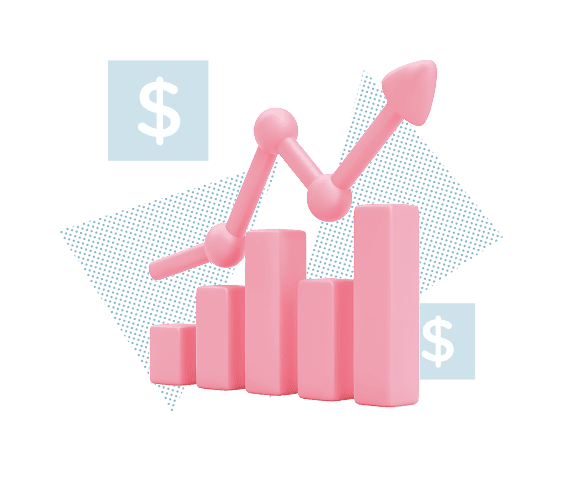How to Buy Bonds
Updated: 11 Apr 2025
Diversify your portfolio and generate steady income. Discover how to buy bonds in Singapore and explore your investment options.
Written bySingSaver Team
Team
The information on this page is for educational and informational purposes only and should not be considered financial or investment advice. While we review and compare financial products to help you find the best options, we do not provide personalised recommendations or investment advisory services. Always do your own research or consult a licensed financial professional before making any financial decisions.
Bonds provide a useful tool for Singaporean investors aiming to generate a steady stream of income and preserve capital. These generally low-to-moderate risk investments can also help diversify a portfolio and mitigate market volatility. To effectively utilise bonds in your investment strategy, it's crucial to understand how and where to buy them. Singaporean investors can choose from a range of bond options, including Singapore Savings Bonds (SSB), Singapore Government Securities (SGS) bonds, Treasury Bills (T-Bills), corporate bonds, and bond ETFs, each offering distinct risk-reward profiles and investment timeframes.
Ready to explore the stock market?
Compare SGX Stocks brokerage accounts and find the best platform for your trading needs.
Know where you can buy bonds
Understanding where to buy bonds is the first step to incorporating them into your investment strategy. Singaporean investors have several avenues to explore, each with its own characteristics and accessibility.
A broker
A broker acts as an intermediary, facilitating the buying and selling of bonds on your behalf. Singaporean investors can purchase corporate and government bonds through established online brokerages like DBS Vickers, OCBC Securities, and Phillip Securities.
To trade bonds listed on the Singapore Exchange (SGX), you'll need a Central Depository (CDP) account linked to your brokerage account. This CDP account is where your SGX-listed bonds and other securities are held electronically, enabling smooth trade settlements.
Beyond the CDP requirement, remember that brokerage fees and minimum investment amounts can vary, so it's essential to compare these costs across different platforms to optimise your investment strategy.
An ETF
Exchange-traded funds offer a convenient and diversified way to invest in bonds. These funds are traded on the SGX just like stocks, providing liquidity and easy access. Examples include the ABF Singapore Bond Index Fund (A35) and the Nikko AM SGD Investment Grade Corporate Bond ETF (MBH).
Unlike individual bonds, ETFs track a basket of bonds, significantly reducing risk through diversification. However, it's crucial to consider the ETF's management fees, which can impact your overall returns, and compare them to the potential returns and costs of investing in individual bonds.
» Learn more: How to buy bond ETFs
Directly from the Singapore government
For Singaporean investors seeking a secure and cost-effective way to invest in bonds, purchasing directly from the government is a viable option. The Singapore government issues various bonds that cater to different investment needs and time horizons.
You can access SSBs, SGS bonds, and T-bills through the following channels:
-
DBS, OCBC, and UOB internet banking: These major local banks offer convenient online platforms for purchasing government bonds, allowing you to manage your investments through your existing banking accounts.
Beyond bank channels, the following tools are available to help you manage your bond investments and broader finances:
-
MySavings Account: This is a platform specifically for managing Singapore Savings Bonds (SSBs). You can use it to apply for, redeem, and monitor your SSB holdings. It's focused solely on SSBs.
-
SGFinDex: This is a national digital infrastructure that allows individuals to access their financial information held across different participating banks and government agencies. It's a broader tool for financial planning and management, with services like MyMoneySense to help with budgeting and analysis. SGFinDex is not exclusively for SSB transactions.
A key advantage of buying government bonds directly is that there are typically no brokerage fees involved, saving you on transaction costs.
To stay informed about upcoming bond auctions and to submit your applications, you can refer to the official website of the Monetary Authority of Singapore (MAS). MAS provides detailed information on bond offerings, application procedures, and allotment results.
» Learn more: How to buy Treasury bonds
When investing in government bonds, carefully consider your investment timeframe and risk tolerance. SSBs offer flexibility and capital preservation, while SGS Bonds and T-bills cater to investors seeking potentially higher returns over longer or shorter periods, respectively. Diversifying your bond holdings across different types and maturities can help you manage risk and optimise your returns.
Key considerations when buying bonds
Before diving into bond investments, it's crucial to understand the essential factors that can impact your returns and risk exposure. Careful evaluation of these aspects will help you make informed decisions and build a robust bond portfolio.
1. Assessing the borrower’s ability to repay
Remember that bonds are essentially IOUs. When you buy a bond, you're lending money to the issuer (the borrower), who is obligated to repay the principal (the original loan amount) at maturity and make regular interest payments (coupon payments) along the way. Therefore, assessing the borrower's ability to meet these obligations is paramount.
Default risk, the risk that the borrower will be unable to repay, is a key concern. For example, if a company's financial situation deteriorates significantly, it may struggle to make interest payments or repay the principal, potentially leading to losses for bondholders.
Corporate bonds
For corporate bonds, credit ratings assigned by agencies like Moody's, S&P, and Fitch serve as a primary indicator of default risk. These ratings provide an assessment of the issuer's creditworthiness, with AAA-rated corporate bonds considered the safest, carrying the lowest risk of default.
It's crucial to understand the different rating scales and their implications. Beyond credit ratings, investors should also conduct their own due diligence by examining the issuer's financial statements, debt levels, and historical performance to gain a comprehensive view of their ability to repay.
» How safe are fixed income securities from a stock market crash?
Government bonds
Singapore government bonds are generally considered among the safest investments globally, boasting a AAA credit rating. However, it's still important to compare the interest rates and features of different government bond options, such as SSBs, SGS bonds, and T-bills, to determine which best aligns with your investment goals and time horizon.
Zero-coupon bonds
While less common for retail investors in Singapore, zero-coupon bonds do exist. Unlike coupon-paying bonds that make regular interest payments, zero-coupon bonds are issued at a discount to their face value and pay the full face value at maturity. The return comes from the difference between the purchase price and the face value, essentially representing the accumulated interest.
» Read more: What are fixed income investment?
2. Timing your bond investments
Determining the optimal time to buy bonds involves understanding the relationship between bond yields and interest rates. Bond yields and prices move inversely to interest rates. This means that when interest rates rise, bond prices tend to fall, and vice-versa.
-
If interest rates are high, bond prices are typically lower, making it potentially advantageous to invest in bonds. This is because you can lock in higher yields, which will continue to pay out even if rates decline in the future.
-
Conversely, if interest rates are low, bond prices tend to be higher, and investors may risk getting locked into lower yields if rates subsequently increase.
In the Singapore, it's helpful to refer to the Singapore Overnight Rate Average (SORA) as a key indicator of prevailing interest rate trends, although it's not the only factor influencing bond yields. Monitoring SORA and broader economic conditions can help you assess whether the current environment is conducive to bond investments.
» Read more: 7 best forex brokers in Singapore for 2025
3. Choosing the right bonds for you
Selecting the appropriate bonds for your portfolio depends heavily on your individual investment goals and risk tolerance. Different types of bonds offer varying levels of risk and potential return:
-
Short-term safety: For investors prioritising safety and liquidity, short-term instruments like T-bills and SSBs are suitable options. These offer relatively low risk and are ideal for preserving capital.
-
Medium-term stable returns: If you seek stable returns over a medium timeframe, consider SGS Bonds and investment-grade corporate bonds. These provide a balance of safety and yield.
-
Higher-risk, higher-return: For investors with a higher risk appetite, high-yield corporate bonds and foreign bonds may offer the potential for higher returns. However, these also come with increased risk of default and currency fluctuations.
It's crucial to carefully evaluate your risk tolerance and investment objectives before making any bond investment decisions.
Types of bonds available in Singapore
Before investing in any type of bonds, you’ll need to first understand what are your options. Fortunately, you have access to a range of bond options, each with its own characteristics and suitability for different investment strategies:
-
Singapore Savings Bonds: These are non-tradable Singapore government bonds designed for individual investors seeking a safe and flexible long-term savings option. SSBs offer principal protection and their interest rates are stepped up over time, providing increasing returns the longer you hold them. They are easily redeemable, offering flexibility for investors who may need access to their funds.
-
Singapore Government Securities Bonds: SGS bonds are tradable debt securities issued by the Singapore government. They are suitable for medium- to long-term investments and offer a range of maturities. SGS Bonds are considered very safe due to the government's strong credit rating and are traded on the SGX, providing liquidity for investors who wish to buy or sell them before maturity.
-
Treasury Bills: T-bills are short-term (typically six-month or one-year) debt securities issued by the Singapore government. They are used for managing government cash flow and are considered a low-risk option for investors seeking to preserve capital over a short period. T-bills are often used as a safe haven during times of market uncertainty.
-
Corporate bonds: These are debt securities issued by companies to raise capital. Corporate bonds offer the potential for higher returns compared to government bonds but also carry a higher risk of default. Careful research and analysis of the issuing company's financial health are crucial before investing in corporate bonds.
Bond taxation in Singapore
Understanding the tax implications of bond investments is essential for maximizing your returns:
-
Singapore government bonds: Interest income from Singapore government bonds is generally tax-free for individuals in Singapore. This makes them an attractive option for investors seeking tax-efficient income.
-
Corporate bonds: Interest income from corporate bonds may be subject to withholding tax, especially for non-residents of Singapore. The specific withholding tax rates and regulations can vary, so it's important to check with the bond issuer or tax advisor to determine the tax implications of investing in corporate bonds.
Relevant articles
Stay ahead in everything finance
Subscribe to our newsletter and receive insightful articles, exclusive tips, and the latest financial news, delivered straight to your inbox.
Expand your investment horizons beyond bonds. Explore the potential of the Singapore stock market and compare different brokerage accounts to find the platform that best aligns with your trading style and investment goals.
About the author
SingSaver Team
At SingSaver, we make personal finance accessible with easy to understand personal finance reads, tools and money hacks that simplify all of life’s financial decisions for you.

